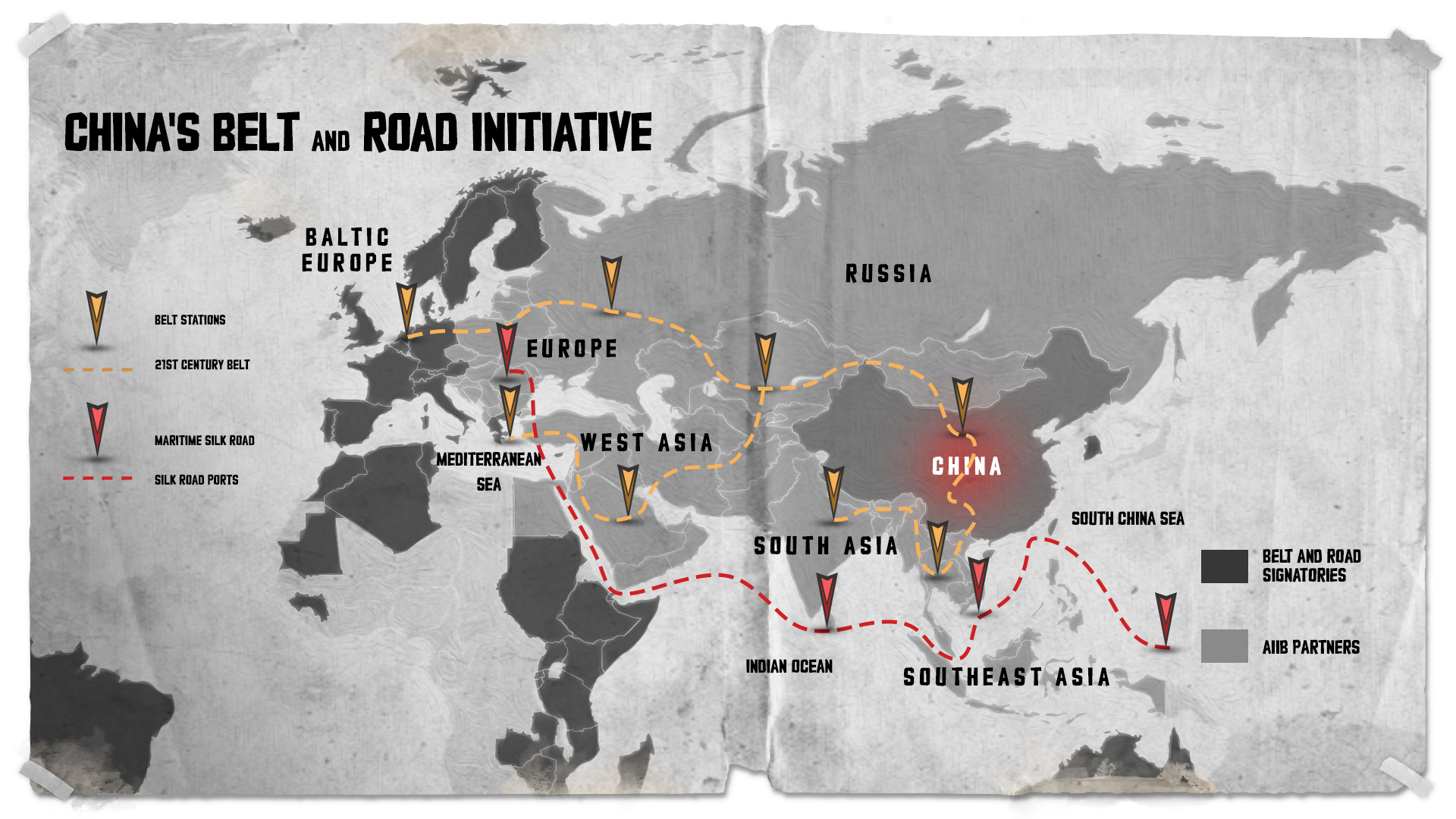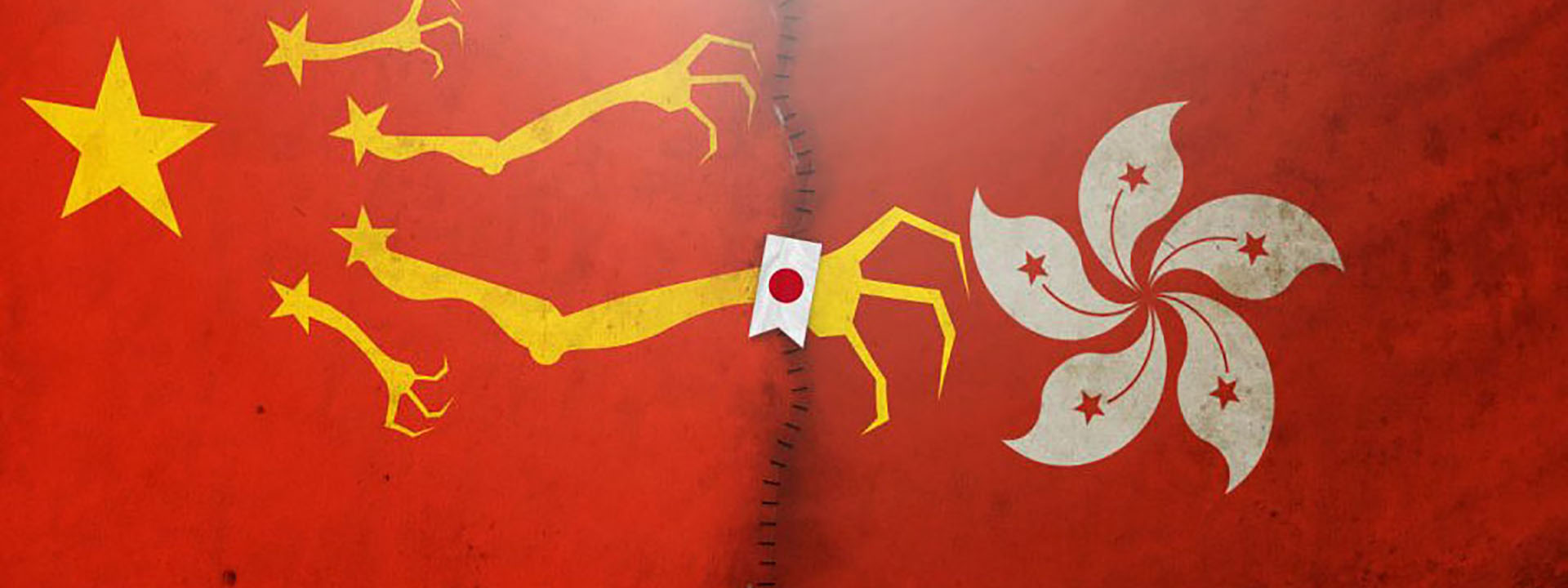While the world is busy dealing with Covid-19, the Chinese government has quietly embarked on a crackdown of Hong Kong’s democracy. On May 28, the National People’s Congress of China approved a resolution to introduce the National Security Law to strengthen Beijing’s control over Hong Kong. This move violates the “one country, two systems” policy that allows a high degree of autonomy for Hong Kong. Once the law is enacted, activities of not only pro-independence actors but also pro-democracy actors in Hong Kong are likely to be repressed in the name of threat to national security. Democracy and human rights in Hong Kong are facing an unprecedented challenge.
Chris Patten, the last Governor of Hong Kong under British rule, immediately criticized this move as breaching the British–Chinese Joint Declaration and, with the help of Hong Kong Watch, launched a signature campaign decrying Beijing’s move and calling for solidarity with Hong Kong. As of June 22, the statement has gathered signatures of more than 900 legislators from more than 40 countries around the world. However, it is worrisome that signatures of legislators from Asian countries are sparse. Asia — where democratic values have been under China’s sharp power offensive through the Belt and Road Initiative, Chinese state media, and Confucius Institutes, among other mechanisms — should show solidarity with Hong Kong.

Asia’s democratic values have been under China’s sharp power offensive through the Belt and Road Initiative, Chinese state media, and Confucius Institutes, among other mechanisms.
The prospect for the region to stand up to China does not seem so bright, however, in the wake of the raging deadly coronavirus wreaking havoc not only on lives but also on nearly every economy, particularly in Asia, where poor and developing countries have been heavily dependent on China.
Among Asian countries, however, Japanese parliamentarians have responded differently. In a surprise move, more than 120 parliamentarians became signatories to the statement. This is the third largest contingent from any country, behind only Canada, whose political competition with China over Huawei has been intense, and the United Kingdom, the former colonial master of Hong Kong.
The result was largely thanks to the efforts of Shiori Yamao (member of the House of Representatives, independent) and Akihisa Nagashima (member of the House of Representatives, Liberal Democratic Party). In particular, Yamao, a liberal parliamentarian, has openly and consistently shown solidarity with Hong Kong and has been drafting a Japanese version of the Magnitsky Act for future parliamentary discussions. Together with Gen Nakatani (member of the House of Representatives, Liberal Democratic Party), she joined the international network formed in June called Inter-Parliamentary Alliance on China. The two are the only participants in the alliance from Asia.

It is not rare for the Japanese government to express concern over violations of democracy and human rights, albeit not as strongly worded as in Western democracies.

Japan’s political parties have also issued statements. The Japanese Communist Party stated officially that it strongly condemns the National Security Law, and the Japan Innovation Party announced that it “strongly appeal[s] to the Chinese Government to withdraw its decision to introduce the national security law.” The Constitutional Democratic Party of Japan posted a statement on its official Twitter account that they will urge to ensure a high degree of democracy and autonomy in Hong Kong.
The Japanese government has also gradually upgraded its moves on the issue. On May 28, Chief Cabinet Secretary Yoshihide Suga stated in a press conference that Japan is seriously concerned about the situation in Hong Kong, and Vice Minister for Foreign Affairs Takeo Akiba conveyed the message directly to Chinese Ambassador to Japan Kong Xuanyou on the same day. On June 8, Prime Minister Shinzo Abe stated in the plenary session of the House of Representatives that he is deeply concerned about the situation. Surprising many commentators, the Japanese government further moved to take an initiative to draft a G7 Foreign Minister’s Statement, calling for maintenance of the “one country, two systems” in Hong Kong.
It is not rare for the Japanese government to express concern over violations of democracy and human rights, albeit not as strongly worded as in Western democracies. However, the number of signatures collected among parliamentarians, the statements issued by political parties, and the government’s initiative for an international statement are all unprecedented. Multiple factors seem to be at work.
For individual politicians, they have accumulated frustration at the Abe administration’s reluctance to say what needs to be said on China for the past year due to the planned state visit of President Xi Jinping to Japan in 2020. This seems to have caused a shared sense of necessity among individual parliamentarians to express their positions separately from the government. Interestingly, such a sense of necessity was shared especially strongly among members of the governing party, particularly among conservative members who hold critical views on China. They have been critical of the Abe administration’s plan to receive Xi in Japan amid the serious human rights violations of protesters in Hong Kong as well.
The Abe administration faced the necessity to compromise with such conservative voices. As Xi’s visit to Japan was cancelled for this year on June 5, the government shifted its stance to take an international initiative on the Hong Kong issue. G7 joint statement was sought as a replacement to the lost opportunity to join the joint statement of Australia, Canada, United Kingdom, and the United States on Hong Kong. Not only is the initiative on Hong Kong at G7 consistent with Japan’s Free and Open Indo-Pacific vision, but the lack of US leadership under the Trump administration has also prompted Japan to assume the role to sustain the liberal international order.
 This is not only a serious suppression of civil liberties and political rights; it will cause a serious destabilization of the Hong Kong society, with an impact rippling outwards to other Asian countries as well.
This is not only a serious suppression of civil liberties and political rights; it will cause a serious destabilization of the Hong Kong society, with an impact rippling outwards to other Asian countries as well.
These moves seem to be motivated based on Japan’s experience of the Tiananmen Square massacre of 1989 as well. Facing the massacre of pro-democracy actors in China while a wave of democratization was sweeping across Eastern Europe, Japanese domestic opinion was split. Many called for economic sanctions on China to defend human rights, but some, especially in the business sector, claimed the necessity to maintain windows for engagement with China. Although Japan eventually applied sanctions, the divisiveness slowed the country’s move, and Japanese response was criticized internationally. The current National Security Law is likely to lead the Hong Kong government to gravely suppress the freedom and human rights of its citizens, and thus echoes the Tiananmen Square incident, even if it does not lead to a massacre. Thus, the Tiananmen experience prompted Japanese actors to act relatively quickly this time around.
As the largest donor and investor in China, Japan was the only Asian country that faced strong international calls to apply sanctions to China at the time of the Tiananmen Square massacre. Other Asian countries did not experience the same dilemma. This difference in experience seems to have caused the variation among Asian countries in their reactions to the Hong Kong issue this time.
The Chinese government will likely finalize and implement the National Security Law before Hong Kong’s legislative council election in September. The Hong Kong government would massively disqualify pro-democracy candidates from running for office on the basis of their past participation in demonstrations. [On June 30, China passed the Hong Kong national security law. – Editor.]
This is not only a serious suppression of civil liberties and political rights; it will cause a serious destabilization of the Hong Kong society, with an impact rippling outwards to other Asian countries as well. Governments, political parties, parliamentarians, and civil society actors should urgently show solidarity with Hong Kong to keep China in check and to prevent the deprivation of freedom, democracy, and human rights in Hong Kong. ●
Maiko Ichihara is Associate Professor at the Graduate School of Law at Hitotsubashi University. She is also Visiting Scholar at the Center on Democracy, Development and the Rule of Law at Stanford University.

















